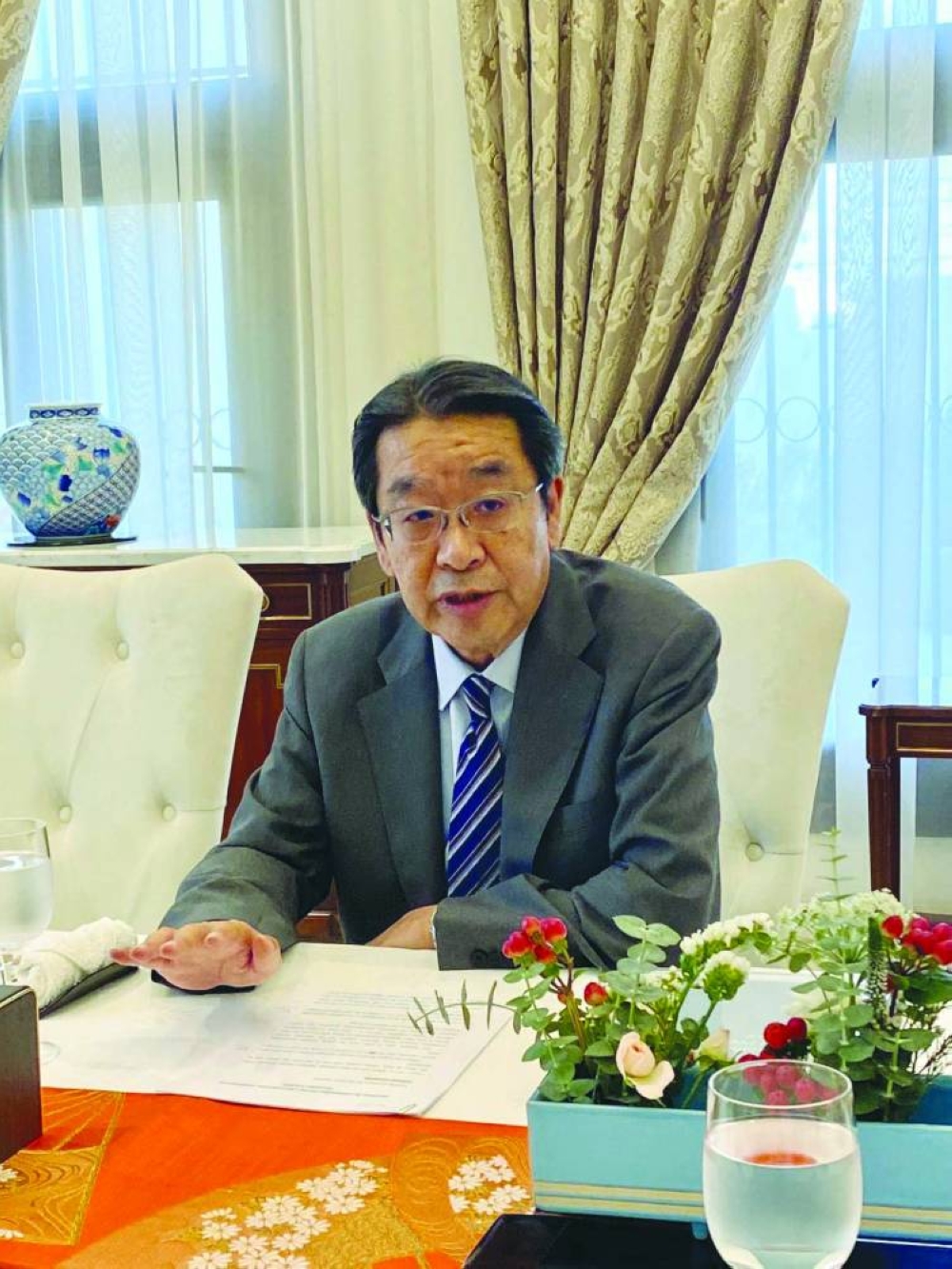Japan’s longstanding import of Liquefied Natural Gas (LNG) and crude oil from Qatar has been complemented by record-high exports to Qatar in 2023, the highest in 15 years, highlighting the mutually beneficial economic relationship between the two countries, Japanese ambassador Satoshi Maeda has said.
In a recent farewell press conference, the envoy underscored the significant increase in Japanese exports to Qatar, driven largely by automobiles, car parts, and steel pipes – crucial for Qatar’s expanding gas fields, accounting for two-thirds of total exports.
Maeda said this robust trade relationship is expected to expand further with the ongoing Northfield expansion project, boosting demand for Japanese steel pipes.
He also stressed the potential for collaboration in cutting-edge technologies and sustainable development. He cited Japan’s commitment to supporting Qatar's National Vision 2030, focusing on areas like economic diversification, innovation, and human resource development.
“This national vision of Qatar, which promotes social, cultural and environmental development, industrial diversification, and human resource development, presents a great opportunity for us to expand our co-operation in those fields, and we will continue to co-operate with Qatar towards its realisation.
“There are many companies in Japan with excellent technologies, and we are working to achieve further co-operation with Qatar in the fields of artificial intelligence (AI), semiconductors, robotics, and communication technology,” Maeda said.
He highlighted the potential for Japanese investment in Qatar’s healthcare and education sectors, noting the popularity of Japanese anime and games in the country as a further area of possible collaboration.
The envoy said Japan’s commitment to clean energy and sustainable development is another key element in its partnership with Qatar, noting its GX (Green Transformation) initiative aimed at balancing economic growth with environmental protection.
He underlined Japan’s leadership in the Asian Zero Emission Community and the Joint Crediting Mechanism, which facilitates greenhouse gas reduction collaborations with 29 countries.
“By expanding these efforts to Qatar, we believe that Japanese technology can contribute to the promotion of clean energy in Qatar,” Maeda said, citing the joint CSS project to store carbon dioxide underground as an example of successful collaboration.
The envoy noted Qatar’s increasing interest in forging stronger ties with Japan and other Asian nations, a trend he sees as a strategic advantage for both sides. He said Japan’s strengths – its robust economy, world-leading R&D capabilities, and proactive approach to attracting foreign investment – are key attractions for Qatari partnerships.
“With Asia's share of global GDP surpassing 50% and expected to reach 60% by 2030, strengthening economic and political ties with Asia will provide a strategic advantage as the world's balance of power shifts,” Maeda said.
He suggested that this eastward focus distinguishes Qatar’s approach from its traditional ties with Western Europe, offering new opportunities for economic diversification and a deeper understanding of the evolving international landscape.
Business
Record exports highlight mutually beneficial partnership
Japan's record exports to Qatar highlight mutually beneficial partnership

Japanese ambassador Satoshi Maeda.

